We can build a complete example here by starting with the ptxjit CUDA sample code and then follow the additional instructions here. That's essentially everything you need.
Here's a full worked example on linux, including Makefile:
$ cat kernel.cu
#include <cstdio>
extern "C" __global__ void k(int N)
{
printf("kernel level %d\n", N);
if ((N > 1) && (threadIdx.x == 0)) k<<<1,1>>>(N-1);
}
$ cat ptxjit.cpp
/*
*/
// System includes
#include <math.h>
#include <stdio.h>
#include <string.h>
#include <iostream>
// CUDA driver & runtime
#include <cuda.h>
#include <cuda_runtime.h>
// helper functions and utilities to work with CUDA
#define CUDA_DRIVER_API
#include <helper_cuda.h>
#include <helper_cuda_drvapi.h>
#include <helper_functions.h> // helper for shared that are common to CUDA Samples
#define PTX_FILE "kernel.ptx"
const char *sSDKname = "CDP Recursion Test (Driver API)";
bool inline findModulePath(const char *module_file, std::string &module_path,
char **argv, std::string &ptx_source) {
char *actual_path = sdkFindFilePath(module_file, argv[0]);
if (actual_path) {
module_path = actual_path;
} else {
printf("> findModulePath file not found: <%s> \n", module_file);
return false;
}
if (module_path.empty()) {
printf("> findModulePath file not found: <%s> \n", module_file);
return false;
} else {
printf("> findModulePath <%s>\n", module_path.c_str());
if (module_path.rfind(".ptx") != std::string::npos) {
FILE *fp = fopen(module_path.c_str(), "rb");
fseek(fp, 0, SEEK_END);
int file_size = ftell(fp);
char *buf = new char[file_size + 1];
fseek(fp, 0, SEEK_SET);
fread(buf, sizeof(char), file_size, fp);
fclose(fp);
buf[file_size] = '\0';
ptx_source = buf;
delete[] buf;
}
return true;
}
}
void ptxJIT(int argc, char **argv, CUmodule *phModule, CUfunction *phKernel,
CUlinkState *lState) {
const int options_num = 5;
CUjit_option options[options_num];
void *optionVals[options_num];
float walltime;
char error_log[8192], info_log[8192];
unsigned int logSize = 8192;
void *cuOut;
size_t outSize;
int myErr = 0;
std::string module_path, ptx_source;
// Setup linker options
// Return walltime from JIT compilation
options[0] = CU_JIT_WALL_TIME;
optionVals[0] = (void *)&walltime;
// Pass a buffer for info messages
options[1] = CU_JIT_INFO_LOG_BUFFER;
optionVals[1] = (void *)info_log;
// Pass the size of the info buffer
options[2] = CU_JIT_INFO_LOG_BUFFER_SIZE_BYTES;
optionVals[2] = (void *)(long)logSize;
// Pass a buffer for error message
options[3] = CU_JIT_ERROR_LOG_BUFFER;
optionVals[3] = (void *)error_log;
// Pass the size of the error buffer
options[4] = CU_JIT_ERROR_LOG_BUFFER_SIZE_BYTES;
optionVals[4] = (void *)(long)logSize;
// Create a pending linker invocation
checkCudaErrors(cuLinkCreate(options_num, options, optionVals, lState));
// first search for the module path before we load the results
if (!findModulePath(PTX_FILE, module_path, argv, ptx_source)) {
printf("> findModulePath could not find <kernel> ptx\n");
exit(EXIT_FAILURE);
} else {
printf("> initCUDA loading module: <%s>\n", module_path.c_str());
}
// Load the PTX from the ptx file
printf("Loading ptxjit_kernel[] program\n");
myErr = cuLinkAddData(*lState, CU_JIT_INPUT_PTX, (void *)ptx_source.c_str(),
strlen(ptx_source.c_str()) + 1, 0, 0, 0, 0);
if (myErr != CUDA_SUCCESS) {
// Errors will be put in error_log, per CU_JIT_ERROR_LOG_BUFFER option
// above.
fprintf(stderr, "PTX Linker Error:\n%s\n", error_log);
}
myErr = cuLinkAddFile(*lState, CU_JIT_INPUT_LIBRARY, "/usr/local/cuda/lib64/libcudadevrt.a", 0, NULL, NULL);
if (myErr != CUDA_SUCCESS) {
// Errors will be put in error_log, per CU_JIT_ERROR_LOG_BUFFER option
// above.
fprintf(stderr, "Library Linker Error:\n%s\n", error_log);
}
// Complete the linker step
checkCudaErrors(cuLinkComplete(*lState, &cuOut, &outSize));
// Linker walltime and info_log were requested in options above.
printf("CUDA Link Completed in %fms. Linker Output:\n%s\n", walltime,
info_log);
// Load resulting cuBin into module
checkCudaErrors(cuModuleLoadData(phModule, cuOut));
// Locate the kernel entry poin
checkCudaErrors(cuModuleGetFunction(phKernel, *phModule, "k"));
// Destroy the linker invocation
checkCudaErrors(cuLinkDestroy(*lState));
}
// Variables
CUcontext cuContext;
int main(int argc, char **argv) {
const unsigned int nThreads = 1;
const unsigned int nBlocks = 1;
CUmodule hModule = 0;
CUfunction hKernel = 0;
CUlinkState lState;
int cuda_device = 0;
printf("[%s] - Starting...\n", sSDKname);
// Initialize
checkCudaErrors(cuInit(0));
CUdevice dev = findCudaDeviceDRV(argc, (const char **)argv);
int driverVersion;
cudaDriverGetVersion(&driverVersion);
if (driverVersion < CUDART_VERSION) {
printf("driverVersion = %d < CUDART_VERSION = %d \n"
"Enhanced compatibility is not supported for this sample.. waving execution\n", driverVersion, CUDART_VERSION);
exit(EXIT_WAIVED);
}
// Create context
checkCudaErrors(cuCtxCreate(&cuContext, 0, dev));
// JIT Compile the Kernel from PTX and get the Handles (Driver API)
ptxJIT(argc, argv, &hModule, &hKernel, &lState);
// Set the kernel parameters (Driver API)
dim3 block(nThreads, 1, 1);
dim3 grid(nBlocks, 1, 1);
int my_N = 4;
void *args[1] = {&my_N};
// Launch the kernel (Driver API_)
checkCudaErrors(cuLaunchKernel(hKernel, grid.x, grid.y, grid.z, block.x,
block.y, block.z, 0, NULL, args, NULL));
std::cout << "CUDA kernel launched" << std::endl;
cuCtxSynchronize();
if (hModule) {
checkCudaErrors(cuModuleUnload(hModule));
hModule = 0;
}
return EXIT_SUCCESS;
}
$ cat Makefile
# Location of the CUDA Toolkit
CUDA_PATH ?= /usr/local/cuda
##############################
# start deprecated interface #
##############################
ifeq ($(x86_64),1)
$(info WARNING - x86_64 variable has been deprecated)
$(info WARNING - please use TARGET_ARCH=x86_64 instead)
TARGET_ARCH ?= x86_64
endif
ifeq ($(ARMv7),1)
$(info WARNING - ARMv7 variable has been deprecated)
$(info WARNING - please use TARGET_ARCH=armv7l instead)
TARGET_ARCH ?= armv7l
endif
ifeq ($(aarch64),1)
$(info WARNING - aarch64 variable has been deprecated)
$(info WARNING - please use TARGET_ARCH=aarch64 instead)
TARGET_ARCH ?= aarch64
endif
ifeq ($(ppc64le),1)
$(info WARNING - ppc64le variable has been deprecated)
$(info WARNING - please use TARGET_ARCH=ppc64le instead)
TARGET_ARCH ?= ppc64le
endif
ifneq ($(GCC),)
$(info WARNING - GCC variable has been deprecated)
$(info WARNING - please use HOST_COMPILER=$(GCC) instead)
HOST_COMPILER ?= $(GCC)
endif
ifneq ($(abi),)
$(error ERROR - abi variable has been removed)
endif
############################
# end deprecated interface #
############################
# architecture
HOST_ARCH := $(shell uname -m)
TARGET_ARCH ?= $(HOST_ARCH)
ifneq (,$(filter $(TARGET_ARCH),x86_64 aarch64 sbsa ppc64le armv7l))
ifneq ($(TARGET_ARCH),$(HOST_ARCH))
ifneq (,$(filter $(TARGET_ARCH),x86_64 aarch64 sbsa ppc64le))
TARGET_SIZE := 64
else ifneq (,$(filter $(TARGET_ARCH),armv7l))
TARGET_SIZE := 32
endif
else
TARGET_SIZE := $(shell getconf LONG_BIT)
endif
else
$(error ERROR - unsupported value $(TARGET_ARCH) for TARGET_ARCH!)
endif
# sbsa and aarch64 systems look similar. Need to differentiate them at host level for now.
ifeq ($(HOST_ARCH),aarch64)
ifeq ($(CUDA_PATH)/targets/sbsa-linux,$(shell ls -1d $(CUDA_PATH)/targets/sbsa-linux 2>/dev/null))
HOST_ARCH := sbsa
TARGET_ARCH := sbsa
endif
endif
ifneq ($(TARGET_ARCH),$(HOST_ARCH))
ifeq (,$(filter $(HOST_ARCH)-$(TARGET_ARCH),aarch64-armv7l x86_64-armv7l x86_64-aarch64 x86_64-sbsa x86_64-ppc64le))
$(error ERROR - cross compiling from $(HOST_ARCH) to $(TARGET_ARCH) is not supported!)
endif
endif
# When on native aarch64 system with userspace of 32-bit, change TARGET_ARCH to armv7l
ifeq ($(HOST_ARCH)-$(TARGET_ARCH)-$(TARGET_SIZE),aarch64-aarch64-32)
TARGET_ARCH = armv7l
endif
# operating system
HOST_OS := $(shell uname -s 2>/dev/null | tr "[:upper:]" "[:lower:]")
TARGET_OS ?= $(HOST_OS)
ifeq (,$(filter $(TARGET_OS),linux darwin qnx android))
$(error ERROR - unsupported value $(TARGET_OS) for TARGET_OS!)
endif
# host compiler
ifeq ($(TARGET_OS),darwin)
ifeq ($(shell expr `xcodebuild -version | grep -i xcode | awk '{print $$2}' | cut -d'.' -f1` \>= 5),1)
HOST_COMPILER ?= clang++
endif
else ifneq ($(TARGET_ARCH),$(HOST_ARCH))
ifeq ($(HOST_ARCH)-$(TARGET_ARCH),x86_64-armv7l)
ifeq ($(TARGET_OS),linux)
HOST_COMPILER ?= arm-linux-gnueabihf-g++
else ifeq ($(TARGET_OS),qnx)
ifeq ($(QNX_HOST),)
$(error ERROR - QNX_HOST must be passed to the QNX host toolchain)
endif
ifeq ($(QNX_TARGET),)
$(error ERROR - QNX_TARGET must be passed to the QNX target toolchain)
endif
export QNX_HOST
export QNX_TARGET
HOST_COMPILER ?= $(QNX_HOST)/usr/bin/arm-unknown-nto-qnx6.6.0eabi-g++
else ifeq ($(TARGET_OS),android)
HOST_COMPILER ?= arm-linux-androideabi-g++
endif
else ifeq ($(TARGET_ARCH),aarch64)
ifeq ($(TARGET_OS), linux)
HOST_COMPILER ?= aarch64-linux-gnu-g++
else ifeq ($(TARGET_OS),qnx)
ifeq ($(QNX_HOST),)
$(error ERROR - QNX_HOST must be passed to the QNX host toolchain)
endif
ifeq ($(QNX_TARGET),)
$(error ERROR - QNX_TARGET must be passed to the QNX target toolchain)
endif
export QNX_HOST
export QNX_TARGET
HOST_COMPILER ?= $(QNX_HOST)/usr/bin/q++
else ifeq ($(TARGET_OS), android)
HOST_COMPILER ?= aarch64-linux-android-clang++
endif
else ifeq ($(TARGET_ARCH),sbsa)
HOST_COMPILER ?= aarch64-linux-gnu-g++
else ifeq ($(TARGET_ARCH),ppc64le)
HOST_COMPILER ?= powerpc64le-linux-gnu-g++
endif
endif
HOST_COMPILER ?= g++
NVCC := $(CUDA_PATH)/bin/nvcc -ccbin $(HOST_COMPILER)
# internal flags
NVCCFLAGS := -m${TARGET_SIZE}
CCFLAGS :=
LDFLAGS :=
# build flags
ifeq ($(TARGET_OS),darwin)
LDFLAGS += -rpath $(CUDA_PATH)/lib
CCFLAGS += -arch $(HOST_ARCH)
else ifeq ($(HOST_ARCH)-$(TARGET_ARCH)-$(TARGET_OS),x86_64-armv7l-linux)
LDFLAGS += --dynamic-linker=/lib/ld-linux-armhf.so.3
CCFLAGS += -mfloat-abi=hard
else ifeq ($(TARGET_OS),android)
LDFLAGS += -pie
CCFLAGS += -fpie -fpic -fexceptions
endif
ifneq ($(TARGET_ARCH),$(HOST_ARCH))
ifeq ($(TARGET_ARCH)-$(TARGET_OS),armv7l-linux)
ifneq ($(TARGET_FS),)
GCCVERSIONLTEQ46 := $(shell expr `$(HOST_COMPILER) -dumpversion` \<= 4.6)
ifeq ($(GCCVERSIONLTEQ46),1)
CCFLAGS += --sysroot=$(TARGET_FS)
endif
LDFLAGS += --sysroot=$(TARGET_FS)
LDFLAGS += -rpath-link=$(TARGET_FS)/lib
LDFLAGS += -rpath-link=$(TARGET_FS)/usr/lib
LDFLAGS += -rpath-link=$(TARGET_FS)/usr/lib/arm-linux-gnueabihf
endif
endif
ifeq ($(TARGET_ARCH)-$(TARGET_OS),aarch64-linux)
ifneq ($(TARGET_FS),)
GCCVERSIONLTEQ46 := $(shell expr `$(HOST_COMPILER) -dumpversion` \<= 4.6)
ifeq ($(GCCVERSIONLTEQ46),1)
CCFLAGS += --sysroot=$(TARGET_FS)
endif
LDFLAGS += --sysroot=$(TARGET_FS)
LDFLAGS += -rpath-link=$(TARGET_FS)/lib -L$(TARGET_FS)/lib
LDFLAGS += -rpath-link=$(TARGET_FS)/lib/aarch64-linux-gnu -L$(TARGET_FS)/lib/aarch64-linux-gnu
LDFLAGS += -rpath-link=$(TARGET_FS)/usr/lib -L$(TARGET_FS)/usr/lib
LDFLAGS += -rpath-link=$(TARGET_FS)/usr/lib/aarch64-linux-gnu -L$(TARGET_FS)/usr/lib/aarch64-linux-gnu
LDFLAGS += --unresolved-symbols=ignore-in-shared-libs
CCFLAGS += -isystem=$(TARGET_FS)/usr/include -I$(TARGET_FS)/usr/include -I$(TARGET_FS)/usr/include/libdrm
CCFLAGS += -isystem=$(TARGET_FS)/usr/include/aarch64-linux-gnu -I$(TARGET_FS)/usr/include/aarch64-linux-gnu
endif
endif
ifeq ($(TARGET_ARCH)-$(TARGET_OS),aarch64-qnx)
NVCCFLAGS += -D_QNX_SOURCE
NVCCFLAGS += --qpp-config 8.3.0,gcc_ntoaarch64le
CCFLAGS += -DWIN_INTERFACE_CUSTOM -I/usr/include/aarch64-qnx-gnu
LDFLAGS += -lsocket
LDFLAGS += -L/usr/lib/aarch64-qnx-gnu
CCFLAGS += "-Wl\,-rpath-link\,/usr/lib/aarch64-qnx-gnu"
ifdef TARGET_OVERRIDE
LDFLAGS += -lslog2
endif
ifneq ($(TARGET_FS),)
LDFLAGS += -L$(TARGET_FS)/usr/lib
CCFLAGS += "-Wl\,-rpath-link\,$(TARGET_FS)/usr/lib"
LDFLAGS += -L$(TARGET_FS)/usr/libnvidia
CCFLAGS += "-Wl\,-rpath-link\,$(TARGET_FS)/usr/libnvidia"
CCFLAGS += -I$(TARGET_FS)/../include
endif
endif
endif
ifdef TARGET_OVERRIDE # cuda toolkit targets override
NVCCFLAGS += -target-dir $(TARGET_OVERRIDE)
endif
# Install directory of different arch
CUDA_INSTALL_TARGET_DIR :=
ifeq ($(TARGET_ARCH)-$(TARGET_OS),armv7l-linux)
CUDA_INSTALL_TARGET_DIR = targets/armv7-linux-gnueabihf/
else ifeq ($(TARGET_ARCH)-$(TARGET_OS),aarch64-linux)
CUDA_INSTALL_TARGET_DIR = targets/aarch64-linux/
else ifeq ($(TARGET_ARCH)-$(TARGET_OS),sbsa-linux)
CUDA_INSTALL_TARGET_DIR = targets/sbsa-linux/
else ifeq ($(TARGET_ARCH)-$(TARGET_OS),armv7l-android)
CUDA_INSTALL_TARGET_DIR = targets/armv7-linux-androideabi/
else ifeq ($(TARGET_ARCH)-$(TARGET_OS),aarch64-android)
CUDA_INSTALL_TARGET_DIR = targets/aarch64-linux-androideabi/
else ifeq ($(TARGET_ARCH)-$(TARGET_OS),armv7l-qnx)
CUDA_INSTALL_TARGET_DIR = targets/ARMv7-linux-QNX/
else ifeq ($(TARGET_ARCH)-$(TARGET_OS),aarch64-qnx)
CUDA_INSTALL_TARGET_DIR = targets/aarch64-qnx/
else ifeq ($(TARGET_ARCH),ppc64le)
CUDA_INSTALL_TARGET_DIR = targets/ppc64le-linux/
endif
# Debug build flags
ifeq ($(dbg),1)
NVCCFLAGS += -g -G
BUILD_TYPE := debug
else
BUILD_TYPE := release
endif
ALL_CCFLAGS :=
ALL_CCFLAGS += $(NVCCFLAGS)
ALL_CCFLAGS += $(EXTRA_NVCCFLAGS)
ALL_CCFLAGS += $(addprefix -Xcompiler ,$(CCFLAGS))
ALL_CCFLAGS += $(addprefix -Xcompiler ,$(EXTRA_CCFLAGS))
UBUNTU = $(shell lsb_release -i -s 2>/dev/null | grep -i ubuntu)
SAMPLE_ENABLED := 1
ALL_LDFLAGS :=
ALL_LDFLAGS += $(ALL_CCFLAGS)
ALL_LDFLAGS += $(addprefix -Xlinker ,$(LDFLAGS))
ALL_LDFLAGS += $(addprefix -Xlinker ,$(EXTRA_LDFLAGS))
# Common includes and paths for CUDA
INCLUDES := -I$(CUDA_PATH)/samples/common/inc
LIBRARIES :=
################################################################################
PTX_FILE := kernel.ptx
#Detect if installed version of GCC supports required C++11
ifeq ($(TARGET_OS),linux)
empty :=
space := $(empty) $(empty)
GCCVERSIONSTRING := $(shell expr `$(HOST_COMPILER) -dumpversion`)
#Create version number without "."
GCCVERSION := $(shell expr `echo $(GCCVERSIONSTRING)` | cut -f1 -d.)
GCCVERSION += $(shell expr `echo $(GCCVERSIONSTRING)` | cut -f2 -d.)
GCCVERSION += $(shell expr `echo $(GCCVERSIONSTRING)` | cut -f3 -d.)
# Make sure the version number has at least 3 decimals
GCCVERSION += 00
# Remove spaces from the version number
GCCVERSION := $(subst $(space),$(empty),$(GCCVERSION))
#$(warning $(GCCVERSION))
IS_MIN_VERSION := $(shell expr `echo $(GCCVERSION)` \>= 47000)
ifeq ($(IS_MIN_VERSION), 1)
$(info >>> GCC Version is greater or equal to 4.7.0 <<<)
else
$(info >>> Waiving build. Minimum GCC version required is 4.7.0<<<)
SAMPLE_ENABLED := 0
endif
endif
# Gencode arguments
SMS ?= 70
ifeq ($(GENCODE_FLAGS),)
# Generate SASS code for each SM architecture listed in $(SMS)
$(foreach sm,$(SMS),$(eval GENCODE_FLAGS += -gencode arch=compute_$(sm),code=sm_$(sm)))
ifeq ($(SMS),)
# Generate PTX code from SM 35
GENCODE_FLAGS += -gencode arch=compute_35,code=compute_35
endif
# Generate PTX code from the highest SM architecture in $(SMS) to guarantee forward-compatibility
HIGHEST_SM := $(lastword $(sort $(SMS)))
ifneq ($(HIGHEST_SM),)
GENCODE_FLAGS += -gencode arch=compute_$(HIGHEST_SM),code=compute_$(HIGHEST_SM)
endif
endif
ifeq ($(TARGET_OS),darwin)
ALL_LDFLAGS += -Xcompiler -F/Library/Frameworks -Xlinker -framework -Xlinker CUDA
else
ifeq ($(TARGET_ARCH),x86_64)
CUDA_SEARCH_PATH ?= $(CUDA_PATH)/lib64/stubs
CUDA_SEARCH_PATH += $(CUDA_PATH)/targets/x86_64-linux/lib/stubs
endif
ifeq ($(TARGET_ARCH)-$(TARGET_OS),armv7l-linux)
CUDA_SEARCH_PATH ?= $(CUDA_PATH)/targets/armv7-linux-gnueabihf/lib/stubs
endif
ifeq ($(TARGET_ARCH)-$(TARGET_OS),aarch64-linux)
CUDA_SEARCH_PATH ?= $(CUDA_PATH)/targets/aarch64-linux/lib/stubs
endif
ifeq ($(TARGET_ARCH)-$(TARGET_OS),sbsa-linux)
CUDA_SEARCH_PATH ?= $(CUDA_PATH)/targets/sbsa-linux/lib/stubs
endif
ifeq ($(TARGET_ARCH)-$(TARGET_OS),armv7l-android)
CUDA_SEARCH_PATH ?= $(CUDA_PATH)/targets/armv7-linux-androideabi/lib/stubs
endif
ifeq ($(TARGET_ARCH)-$(TARGET_OS),aarch64-android)
CUDA_SEARCH_PATH ?= $(CUDA_PATH)/targets/aarch64-linux-androideabi/lib/stubs
endif
ifeq ($(TARGET_ARCH)-$(TARGET_OS),armv7l-qnx)
CUDA_SEARCH_PATH ?= $(CUDA_PATH)/targets/ARMv7-linux-QNX/lib/stubs
endif
ifeq ($(TARGET_ARCH)-$(TARGET_OS),aarch64-qnx)
CUDA_SEARCH_PATH ?= $(CUDA_PATH)/targets/aarch64-qnx/lib/stubs
ifdef TARGET_OVERRIDE
CUDA_SEARCH_PATH := $(CUDA_PATH)/targets/$(TARGET_OVERRIDE)/lib/stubs
endif
endif
ifeq ($(TARGET_ARCH),ppc64le)
CUDA_SEARCH_PATH ?= $(CUDA_PATH)/targets/ppc64le-linux/lib/stubs
endif
ifeq ($(HOST_ARCH),ppc64le)
CUDA_SEARCH_PATH += $(CUDA_PATH)/lib64/stubs
endif
CUDALIB ?= $(shell find -L $(CUDA_SEARCH_PATH) -maxdepth 1 -name libcuda.so 2> /dev/null)
ifeq ("$(CUDALIB)","")
$(info >>> WARNING - libcuda.so not found, CUDA Driver is not installed. Please re-install the driver. <<<)
SAMPLE_ENABLED := 0
else
CUDALIB := $(shell echo $(CUDALIB) | sed "s/ .*//" | sed "s/\/libcuda.so//" )
LIBRARIES += -L$(CUDALIB) -lcuda
endif
endif
ALL_CCFLAGS += --threads 0 --std=c++11
LIBRARIES += -lcudart_static
ifeq ($(SAMPLE_ENABLED),0)
EXEC ?= @echo "[@]"
endif
################################################################################
# Target rules
all: build
build: ptxjit $(PTX_FILE)
check.deps:
ifeq ($(SAMPLE_ENABLED),0)
@echo "Sample will be waived due to the above missing dependencies"
else
@echo "Sample is ready - all dependencies have been met"
endif
$(PTX_FILE): kernel.cu
$(EXEC) $(NVCC) $(INCLUDES) $(ALL_CCFLAGS) $(GENCODE_FLAGS) -rdc=true -o $@ -ptx $<
ptxjit.o:ptxjit.cpp
$(EXEC) $(NVCC) $(INCLUDES) $(ALL_CCFLAGS) $(GENCODE_FLAGS) -o $@ -c $<
ptxjit: ptxjit.o
$(EXEC) $(NVCC) $(ALL_LDFLAGS) $(GENCODE_FLAGS) -o $@ $+ $(LIBRARIES)
run: build
$(EXEC) ./ptxjit
clean:
rm -f ptxjit ptxjit.o $(PTX_FILE)
clobber: clean
$ make clean
>>> GCC Version is greater or equal to 4.7.0 <<<
rm -f ptxjit ptxjit.o kernel.ptx
$ make
>>> GCC Version is greater or equal to 4.7.0 <<<
/usr/local/cuda/bin/nvcc -ccbin g++ -I/usr/local/cuda/samples/common/inc -m64 --threads 0 --std=c++11 -gencode arch=compute_70,code=sm_70 -gencode arch=compute_70,code=compute_70 -o ptxjit.o -c ptxjit.cpp
/usr/local/cuda/bin/nvcc -ccbin g++ -m64 -gencode arch=compute_70,code=sm_70 -gencode arch=compute_70,code=compute_70 -o ptxjit ptxjit.o -L/usr/local/cuda/lib64/stubs -lcuda -lcudart_static
/usr/local/cuda/bin/nvcc -ccbin g++ -I/usr/local/cuda/samples/common/inc -m64 --threads 0 --std=c++11 -gencode arch=compute_70,code=sm_70 -gencode arch=compute_70,code=compute_70 -rdc=true -o kernel.ptx -ptx kernel.cu
$ cuda-memcheck ./ptxjit
========= CUDA-MEMCHECK
[CDP Recursion Test (Driver API)] - Starting...
> Using CUDA Device [0]: Tesla V100-PCIE-32GB
> findModulePath <./kernel.ptx>
> initCUDA loading module: <./kernel.ptx>
Loading ptxjit_kernel[] program
CUDA Link Completed in 0.000000ms. Linker Output:
CUDA kernel launched
kernel level 4
kernel level 3
kernel level 2
kernel level 1
========= ERROR SUMMARY: 0 errors
$
On windows, you'd follow the same path, using the above files. Start with the ptxjit project. For simplicity you might want to rename the kernel so that it exactly matches the name of the kernel file used in the ptxjit project.
Here's the detailed steps I followed, using VS2019:
- Open the ptxjit solution, on my machine it was here:
C:\ProgramData\NVIDIA Corporation\CUDA Samples\v11.1\6_Advanced\ptxjit
- Take the ptxjit.cpp code from the above linux version, and use it to replace the contents of ptxjit.cpp in that solution/project.
- Change the define statement back to:
#define PTX_FILE "ptxjit_kernel64.ptx"
- Change the location of the device runtime library to match your machine. Specifically this line:
myErr = cuLinkAddFile(*lState, CU_JIT_INPUT_LIBRARY, "/usr/local/cuda/lib64/libcudadevrt.a", 0, NULL, NULL); needs to be changed to something like myErr = cuLinkAddFile(*lState, CU_JIT_INPUT_LIBRARY, "C:\\Program Files\\NVIDIA GPU Computing Toolkit\\CUDA\\v11.1\\lib\\x64\\cudadevrt.lib", 0, NULL, NULL);
- In the ptxjit_kernel.cu file in that project, replace the contents of that file with the kernel.cu file contents from the above linux version.
- In the solution explorer window, right click on the ptxjit_kernel.cu file and select "Properties". In the "Configuration Properties" pane on the left, expand the CUDA C/C++ section, and select "Common". In the pane on the right, change the "Generate Relocatable Device Code" option from No to Yes. Click "OK".
- In the same solution explorer window, right click on the ptxjit project, and select properties. Go into configuration properties...CUDA Linker...General, and change "Perform Device Link" from Yes to No. Click "OK".
- Select Build...Rebuild Solution
When I do that, I get build console output like this:
1>------ Rebuild All started: Project: ptxjit, Configuration: Debug x64 ------
1>Compiling CUDA source file ptxjit_kernel.cu...
1>
1>C:\ProgramData\NVIDIA Corporation\CUDA Samples\v11.1\6_Advanced\ptxjit>"C:\Program Files\NVIDIA GPU Computing Toolkit\CUDA\v11.1\bin\nvcc.exe" -gencode=arch=compute_35,code=\"compute_35,compute_35\" --use-local-env -ccbin "C:\Program Files (x86)\Microsoft Visual Studio\2019\Community\VC\Tools\MSVC\14.26.28801\bin\HostX86\x64" -x cu -rdc=true -I./ -I../../common/inc -I./ -I"C:\Program Files\NVIDIA GPU Computing Toolkit\CUDA\v11.1\/include" -I../../common/inc -I"C:\Program Files\NVIDIA GPU Computing Toolkit\CUDA\v11.1\include" -I"C:\Program Files\NVIDIA GPU Computing Toolkit\CUDA\v11.1\include" -G --keep-dir x64\Debug -maxrregcount=0 --machine 64 -ptx -cudart static -Xcompiler "/wd 4819" -o data/ptxjit_kernel64.ptx "C:\ProgramData\NVIDIA Corporation\CUDA Samples\v11.1\6_Advanced\ptxjit\ptxjit_kernel.cu"
1>CUDACOMPILE : nvcc warning : The 'compute_35', 'compute_37', 'compute_50', 'sm_35', 'sm_37' and 'sm_50' architectures are deprecated, and may be removed in a future release (Use -Wno-deprecated-gpu-targets to suppress warning).
1>ptxjit_kernel.cu
1>Done building project "ptxjit_vs2019.vcxproj".
1>ptxjit.cpp
1>C:\ProgramData\NVIDIA Corporation\CUDA Samples\v11.1\6_Advanced\ptxjit\ptxjit.cpp(318,41): warning C4312: 'type cast': conversion from 'long' to 'void *' of greater size
1>C:\ProgramData\NVIDIA Corporation\CUDA Samples\v11.1\6_Advanced\ptxjit\ptxjit.cpp(324,41): warning C4312: 'type cast': conversion from 'long' to 'void *' of greater size
1>LINK : ..\..\bin\win64\Debug\\ptxjit.exe not found or not built by the last incremental link; performing full link
1> Creating library ../../bin/win64/Debug/ptxjit.lib and object ../../bin/win64/Debug/ptxjit.exp
1>ptxjit_vs2019.vcxproj -> C:\ProgramData\NVIDIA Corporation\CUDA Samples\v11.1\6_Advanced\ptxjit\../../bin/win64/Debug/ptxjit.exe
1>Done building project "ptxjit_vs2019.vcxproj".
========== Rebuild All: 1 succeeded, 0 failed, 0 skipped ==========
At that point we can go to the indicated location of the exe:
C:\ProgramData\NVIDIA Corporation\CUDA Samples\v11.1\6_Advanced\ptxjit\../../bin/win64/Debug/ptxjit.exe
and run it in a command console. When I do that I see output like this:
C:\ProgramData\NVIDIA Corporation\CUDA Samples\v11.1\bin\win64\Debug>ptxjit.exe
[CDP Recursion Test (Driver API)] - Starting...
> Using CUDA Device [0]: Quadro P4000
sdkFindFilePath <ptxjit_kernel64.ptx> in ./
...
sdkFindFilePath <ptxjit_kernel64.ptx> in ../../../6_Advanced/ptxjit/data/
> findModulePath <../../../6_Advanced/ptxjit/data/ptxjit_kernel64.ptx>
> initCUDA loading module: <../../../6_Advanced/ptxjit/data/ptxjit_kernel64.ptx>
Loading ptxjit_kernel[] program
CUDA Link Completed in -107374176.000000ms. Linker Output:
CUDA kernel launched
kernel level 4
kernel level 3
kernel level 2
kernel level 1
C:\ProgramData\NVIDIA Corporation\CUDA Samples\v11.1\bin\win64\Debug>
Notes:
- The C4312 warnings in compilation above are in the original project and can be removed by switching from
long to long long on the associated lines. This is not an actual problem.
- The extended sequence of
sdkFindFilePath messages printed at runtime can be shortened by copying the ptx file from its location to the location of the exe file. The final sdkFindFilePath output will tell you where it found the ptx file.
